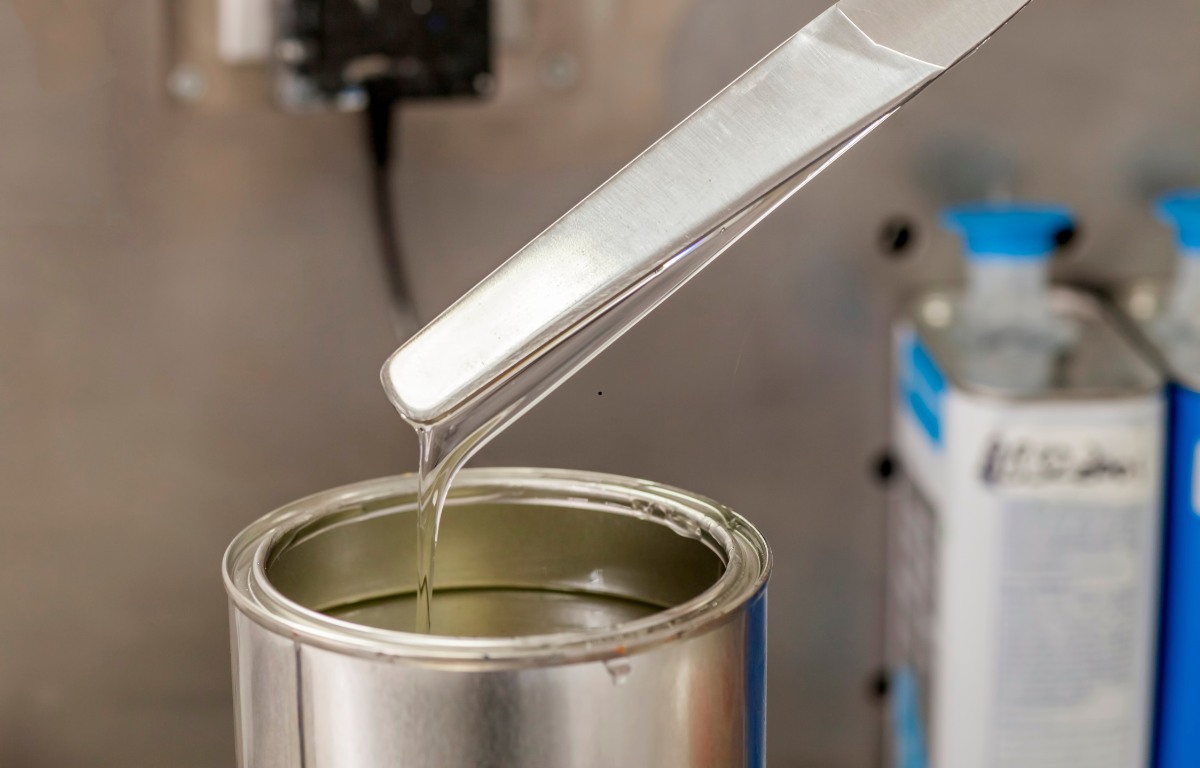Acrylic Resins: Complete Guide – Types, Uses, Benefits & Comparisons
Acrylic resins are everywhere — from the paint on your walls to the clear panels in aquariums — yet few people realize how essential they are. These synthetic materials power industries like automotive, construction, electronics, and even fashion.
But what exactly is acrylic resin? What is it made of? How does it compare to epoxy or polyester resin? In this guide, we’ll answer all these questions and more — covering types, uses, benefits, prices, differences, and industry trends — so you have the most complete reference on acrylic resins.
What is Acrylic Resin?
(what is acrylic resin • is acrylic a resin • is resin acrylic)
Acrylic resin is a synthetic polymer made by polymerizing acrylic acid, methacrylic acid, or related compounds. During polymerization, small molecules called monomers link together to form long chains, creating a lightweight yet durable material.
Acrylic resins are available in two main types:
- Thermoplastic Acrylic Resins – Soften when heated and can be reshaped multiple times.
- Thermosetting Acrylic Resins – Harden permanently after curing and cannot be remelted.
Key properties:
- Excellent UV resistance (won’t yellow easily)
- Weatherproof and durable
- Resistant to chemicals and scratches
- Can be clear, tinted, or opaque
What is Acrylic Resin Made Of?
(what is acrylic resin made of • acrylic resin raw material)
Most acrylic resins are made from:
- Acrylic acid / Methacrylic acid (base monomers)
- Esters (for flexibility and clarity)
- Additives (for UV resistance, color, or strength)
Some variations are water-based acrylic resins (eco-friendly) or solvent-based acrylic resins (faster curing but higher VOC emissions).
Types of Acrylic Resin
(types of acrylic resin • liquid acrylic resin • acrylic resin powder • solid acrylic resin • thermoplastic acrylic resin • thermosetting acrylic resin • water-based acrylic resin • solvent-based acrylic resin)
Acrylic resins come in many forms for different industries:
- Liquid Acrylic Resin – Used in coatings, adhesives, and dental applications.
- Acrylic Resin Powder – Ideal for paints, powder coatings, and molding.
- Solid Acrylic Resin – Common in signage, furniture, and automotive parts.
- Water-Based Acrylic Resin – Low-VOC, eco-friendly option for paints and sealants.
- Solvent-Based Acrylic Resin – Higher performance for industrial coatings.
- Thermoplastic Acrylic Resin – Flexible and re-moldable.
- Thermosetting Acrylic Resin – Permanently rigid and heat-resistant.
Key Uses of Acrylic Resin
(acrylic resin uses • what is acrylic resin used for • acrylic resin for paint • acrylic resin for wood • acrylic resins for coatings)
1. Paints & Coatings
Acrylic resins dominate the paint industry due to:
- Fast drying time
- Excellent adhesion
- UV resistance
Applications include house paints, automotive coatings, industrial machinery, and even nail polish.
2. Adhesives & Sealants
Acrylic resin adhesives bond well to metal, wood, glass, and plastic, withstanding extreme temperatures — perfect for construction, electronics, and marine uses.
3. Plastics & Acrylic Glass
Products like Plexiglas® and Lucite® are acrylic resin sheets used in windows, aquariums, skylights, and display cases — lighter and safer than glass.
4. Textiles & Leather
Acrylic resins are applied to fabrics and leather for water resistance and durability in raincoats, handbags, and upholstery.
5. Specialty Applications
- Dental prosthetics (self-cure and heat-cure acrylic resins)
- Flooring systems
- Waterproofing membranes
- 3D printing materials
Acrylic Resin vs. Other Resins
(acrylic resin vs epoxy resin • acrylic vs resin • resin vs acrylic • epoxy vs acrylic resin • difference between acrylic and resin • acrylic vs epoxy)
| Feature | Acrylic Resin | Epoxy Resin | Polyester Resin |
|---|---|---|---|
| UV Resistance | Excellent | Poor (yellows over time) | Moderate |
| Durability | High | Very High | Medium |
| Curing Time | Fast | Slow | Fast |
| Flexibility | Good | Rigid | Brittle |
| Cost | Moderate | High | Low |
| Best Use | Outdoor coatings, signage | Industrial bonding, marine | Automotive, boats |
Key Takeaway: Acrylic resins outperform epoxy in UV stability and flexibility, making them better for outdoor uses. Epoxy excels in adhesion strength, while polyester is budget-friendly but less durable.
Acrylic Resin Price & Market
(acrylic resin price • acrylic resin market • acrylic resin suppliers • acrylic resin manufacturers)
Prices vary depending on type and quantity:
- Liquid acrylic resin: Depending on the Product
- Acrylic resin powder: Depending on the Product
- Specialty grades (UV-curable, bio-based): Higher
The global acrylic resin market is expanding rapidly, driven by the demand for eco-friendly coatings, the automotive industry, and the growth of 3D printing.
Environmental Impact & Sustainability
(eco-friendly acrylic resin • bio-based acrylic resin)
While acrylic resins are plastics, many are recyclable. New innovations include:
- Bio-based acrylic resins from renewable sources
- Low-VOC water-based resins for safer air quality
- Self-healing coatings for longer lifespan
FAQs about Acrylic Resin
Q1. Is acrylic resin waterproof?
Yes, most acrylic resins are naturally water-resistant, making them suitable for outdoor coatings and sealants.
Q2. Is acrylic resin toxic?
Uncured liquid acrylic resin can release fumes; cured resin is generally safe. Always use proper ventilation when working with it.
Q3. Is acrylic the same as resin?
No. Acrylic is a type of resin, but resins can also be epoxy, polyester, or silicone-based.
Q4. What is acrylic resin used for in construction?
For waterproof coatings, adhesives, sealants, and decorative finishes.
Q5. Acrylic resin vs epoxy resin – which is better?
Choose acrylic for UV stability and epoxy for maximum bond strength.
Conclusion
From glossy car finishes to unbreakable signage, acrylic resins combine durability, versatility, and cost-effectiveness. With sustainable innovations on the rise, acrylic resins will continue shaping industries for decades to come.
If you’re exploring options for coatings, adhesives, plastics, or specialty applications, acrylic resin remains one of the most reliable and adaptable materials available today.

